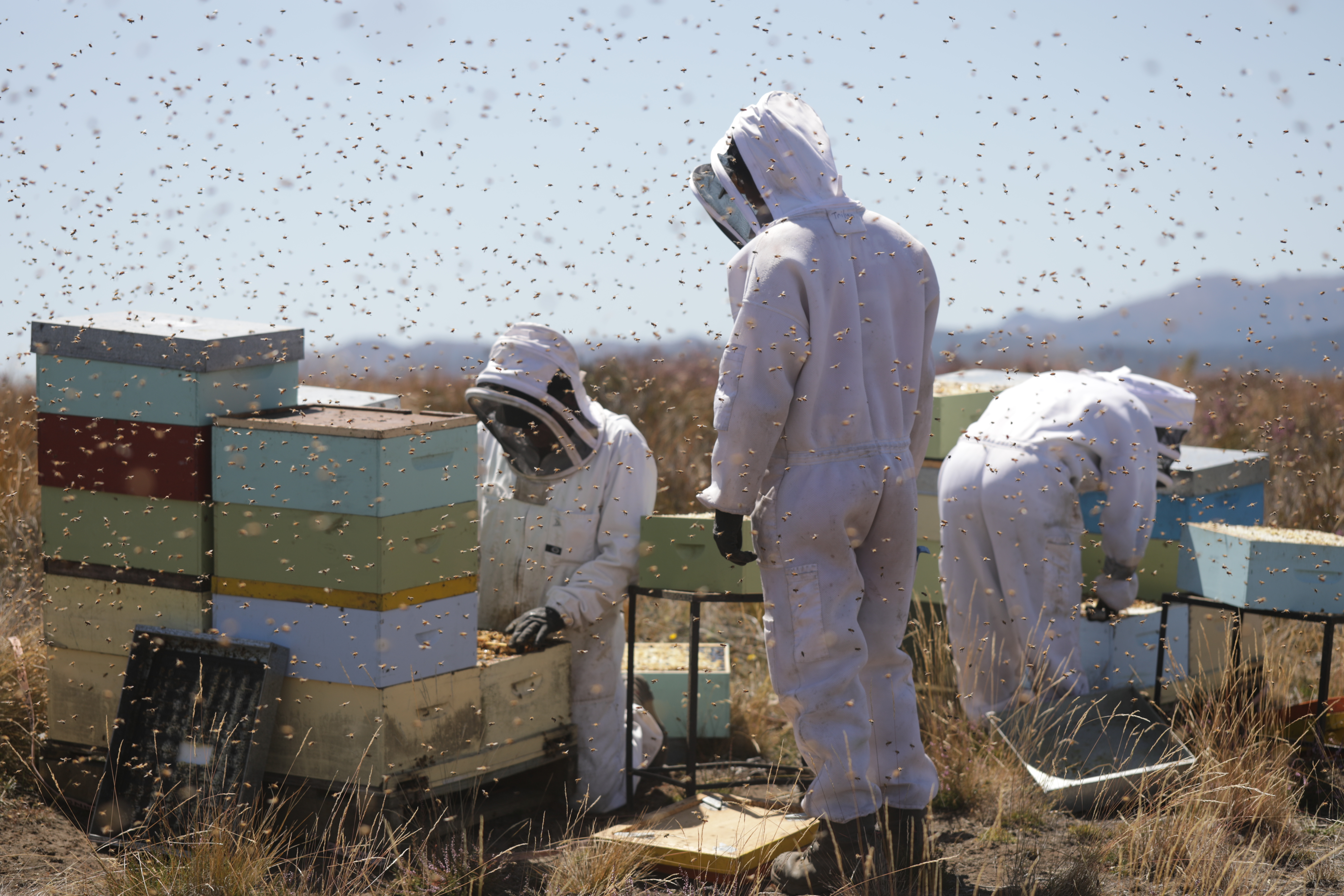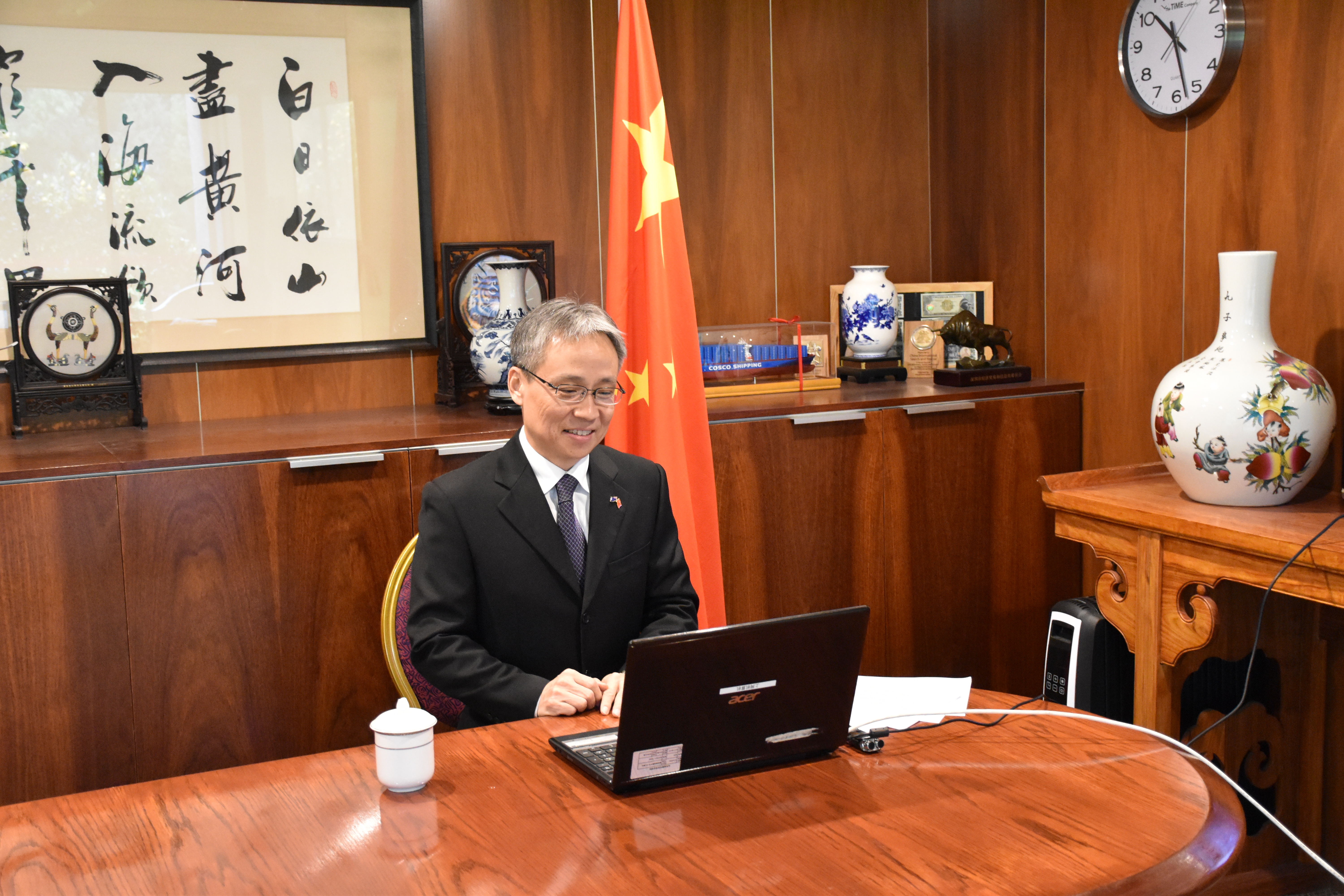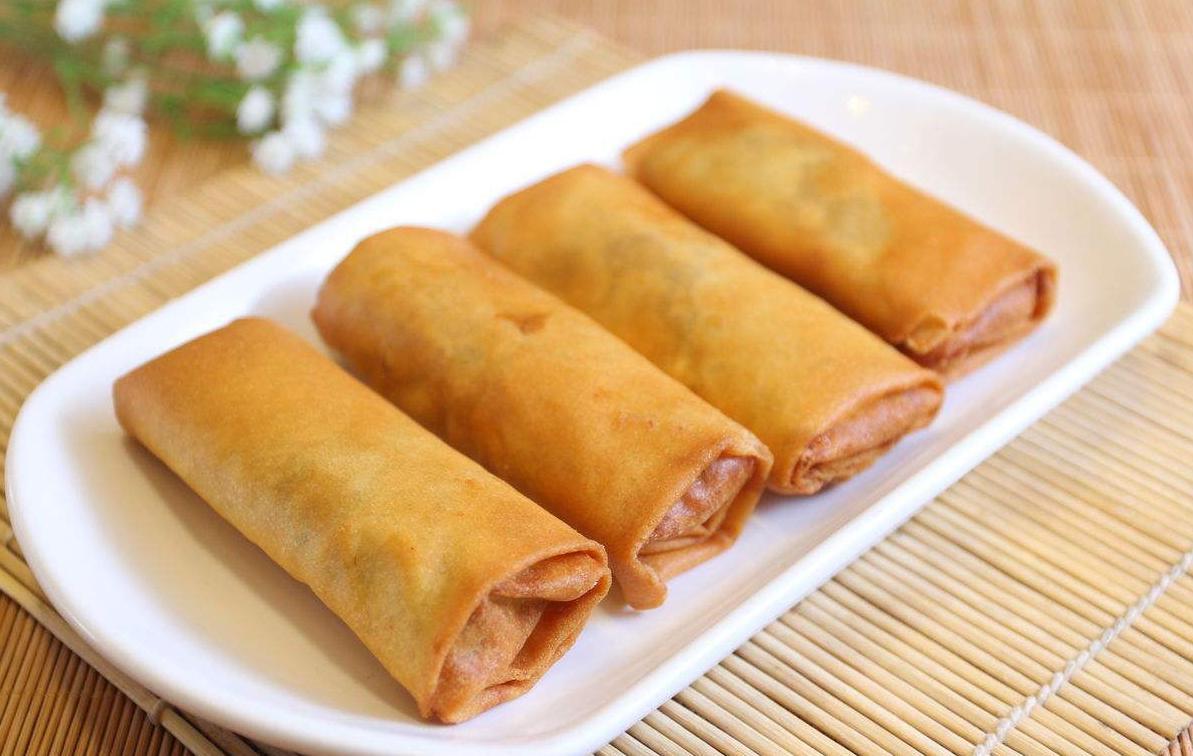— Asia-Pacific countries, with a flattened curve of infected cases or no case at all, are gradually loosening the grip to give their severely affected businesses and people a chance to relax and revive.
— Precautionary measures are being implemented to prevent the resurgence of the conoravirus.
HONG KONG, June 26 (Xinhua) — How to balance COVID-19 restrictions and socio-economic sustainability is a tricky thing for the world.
When the summer comes, Asia-Pacific countries, with a flattened curve of infected cases or no case at all, are gradually loosening the grip to give their severely affected businesses and people a chance to relax and revive, yet with precautions.
“PRODUCTION WAS IMPACTED”
“Honey is a seasonal output. We were in lockdown just when it was usually the busiest season. Therefore, the production was impacted. Market demand also fell dramatically as the world went into quarantine mode,” said John Qin, a New Zealand honey factory owner.
Qin, a Chinese New Zealander who owns a honey factory in Auckland for more than 20 years and exports high-quality honey products to China, the United States, and all the way to Europe — except for this year — as his business was hit badly by the COVID-19 pandemic, both in market demand and production.
“Our business may not earn much profit this year. But I guess it will be still slightly above breakeven,” he said.
 Bee keepers work at Matakana Village, the North Island, New Zealand, Feb. 11, 2020. (Photo by Sally Chen/Xinhua)
Bee keepers work at Matakana Village, the North Island, New Zealand, Feb. 11, 2020. (Photo by Sally Chen/Xinhua)
Joseph Dante, a Filipino construction worker, lost his job as another 7.3 million Filipinos did and relied on others’ generosity for financial or food aid, after his country imposed a lockdown in Luzon island in mid-March to stem the spread of COVID-19.
Thalpege Ranjith Premadasa, an administrative manager of Tri-Zen Residential Development Project in Colombo, along with his fellow workers, had to go back home and waited for further notice, when the Sri Lankan government started imposing a national curfew on March 20, closing down construction and suspending projects.
“DEMAND PICKS UP”
As New Zealand’s new COVID-19 cases have become scarce in recent days, it moved to COVID-19 Alert Level 1 at 11:59 p.m. local time (1159 GMT) on June 8, with life and economy back to normal except continuing border controls.
With the ease of restrictions, Qin sees light at the end of the tunnel, as the honey production and demand have just picked up recently.
“During the post COVID-19 recovery, when consumers pay more attention to how to keep fit and enhance immunity, our products will see a surge in the market need,” he explained.
“I feel positive to the future business forecast. That’s why I’m investing in online marketing,” he added.
 Photo taken with a mobile phone shows Thalpege Ranjith Premadasa (3rd, L), an administrative manager of Tri-Zen Residential Development Project in Colombo, checking information of workers ready to return to Colombo to work in Trincomalee, Sri Lanka, May 28, 2020. (Xinhua)
Photo taken with a mobile phone shows Thalpege Ranjith Premadasa (3rd, L), an administrative manager of Tri-Zen Residential Development Project in Colombo, checking information of workers ready to return to Colombo to work in Trincomalee, Sri Lanka, May 28, 2020. (Xinhua)
On May 11, the Sri Lankan government decided to allow Colombo to gradually restore economic activities. Ranjith immediately returned to the company and decided to send out buses to Trincomalee, Kandy, Batticaloa and other places to pick up workers back to the capital city.
By now, more than 50 workers have been taken back to work in Colombo by the tailored bus service. For Ranjith, seeing the big smiles on the workers’ faces makes him most happy.
On June 1, the Philippine government decided to ease the quarantine restrictions in Metro Manila and several provinces in the country in a bid to gradually restart the economy.
Dante heaved a sigh of relief after hearing the news, saying that he can finally make a living again. He picked up his ordinary scissors and combs and headed out to look for clients on the streets. Barbering, which used to be only a part-time job, has now become Dante’s main source of income.
“Someday, I’d like to set up my own barbershop,” 44-year-old Dante said in mask and gloves, yet with a smile.
 A hairdresser gives a customer a haircut at a barbershop in Kuala Lumpur, Malaysia, June 10, 2020. (Photo by Chong Voon Chung/Xinhua)
A hairdresser gives a customer a haircut at a barbershop in Kuala Lumpur, Malaysia, June 10, 2020. (Photo by Chong Voon Chung/Xinhua)
“I FEEL PRETTY SAFE”
In a barbershop in Kuala Lumpur, Malaysia, local resident, who identified himself as “Mr. Tee,” had his hair cut for the first time in three months.
“I felt cool and refreshed,” he said.
Mr. Tee said he did not feel much worried. “They have done the disinfection, had my temperature taken and put the disposable protective cloth on me, so I feel pretty safe.”
The barber, Raj, said more than 30 customers had come as of noon on June 10. “We have closed for a long time, so many people come today.”
Both customers and their hairstylists need to get used to the strict measures set by the Malaysian government to prevent further spread of the virus.
Barbers and beauticians are required to wear face masks, face shields, and gloves. Customers are required to have their temperatures checked, contacts recorded, and to put on face masks too. Many barber’s and beauty salons only provide haircut service for the moment.
 Photo taken with a mobile phone shows workers brought back to work by a tailored bus service at a construction site in Colombo, Sri Lanka, June 13, 2020. (Xinhua)
Photo taken with a mobile phone shows workers brought back to work by a tailored bus service at a construction site in Colombo, Sri Lanka, June 13, 2020. (Xinhua)
For Jarrad White, founder of the Australian Premium Wine Group, many adjustments had to be made at his vineyards during the COVID-19 lockdown, and to be maintained though the restrictions were eased.
“Across the vineyards, procedures were immediately implemented for our hand-picking crews, ensuring social distancing was strictly adhered to and pickers used only their own buckets,” he said.
White said the most notable adjustments were with the changeovers between day and night shifts. “Between the changeovers, hand rails, pumps and control screens et cetera were all cleaned and sanitized to ensure the winery remained free of any COVID-19 cases.”
“I FELT CONFIDENT TO COME OUT”
After a further easing of restrictions in Australia in early June, people in Canberra are able to go to the National Museum of Australia to enjoy an exhibition of Captain James Cook’s great voyage.
“This exhibition tells a really epic story,” said Shona Coyne, curator of the exhibition, which honors both Cook’s great voyage of scientific and geographic exploration and the rich Aboriginal and Torres Strait Islander culture that has thrived in Australia for at least 65,000 years.
 Passengers wearing face masks wait in line to have their body temperature checked before boarding a train on the first day when the COVID-19 lockdown restrictions were further eased in Manila, the Philippines, June 1, 2020. (Xinhua/Rouelle Umali)
Passengers wearing face masks wait in line to have their body temperature checked before boarding a train on the first day when the COVID-19 lockdown restrictions were further eased in Manila, the Philippines, June 1, 2020. (Xinhua/Rouelle Umali)
Precautionary measures are being implemented.
“We have installed the hand sanitizer, so whenever you use an interactive, you can clean your hands before and afterwards, and then have fun with the activities we’ve created,” Coyne said.
“Actually we have a task force go around each one of the interactive activities and make sure we had certain measures in place,” she said, noting that at the drawing station, all the pencils are for single use only and visitors could take them home.
She told Xinhua that the museum also used a booking system to control the number of people allowed into the exhibition space.
“I am satisfied with the museum’s measures as well as local government’s handling of coronavirus,” said a visitor named Garrett Turtill. “That’s why I felt confident to come out to the exhibition.”
(Xinhua reporters Lu Huaiqian from Wellington, Tang Lu from Colombo, Bai Xu from Canberra, Yang Ke from Manila, Lin Hao from Kuala Lumpur contributed to the story.)










